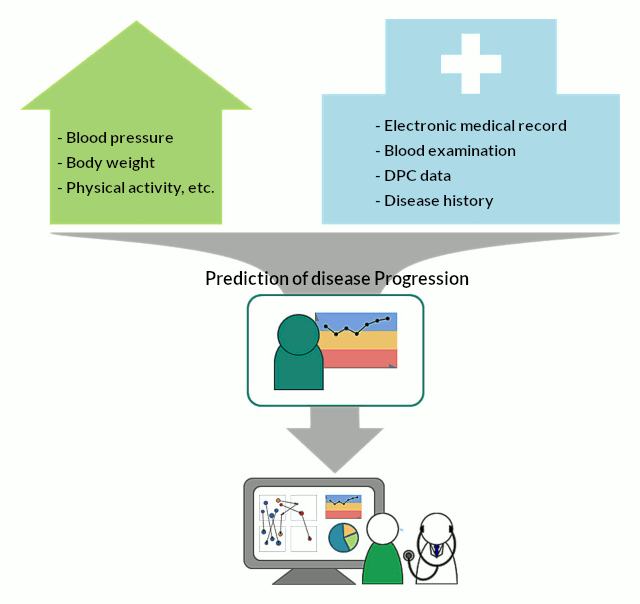
Recently, chronic diseases such as diabetes and hypertension have been on the rise. Because chronic diseases develop gradually and have long-term effects, it is important not only to "treat and cure" but also to "monitor the disease for a longer period of time". However, the long treatment period and gradual changes in symptoms make it difficult to predict the course of the disease. Therefore, the SECOM IS Laboratory is researching information processing technology to predict disease progression.
If prediction becomes possible, we can know when and what kind of symptoms will occur, enabling timely treatment by the right specialist. Predicting disease progression requires detailed analysis of medical information. However, for systemic diseases such as diabetes and kidney disease, a patient may need to see multiple specialists. Because the treatment information is fragmented, it is difficult for doctors to see the big picture.
Therefore, technology that summarizes medical information is key. It enables the integration of information from multiple medical departments, facilities and home checks, with the patient at the center. This allows the doctor to review the information about the patient, which helps in understanding the condition and progression of the disease.
